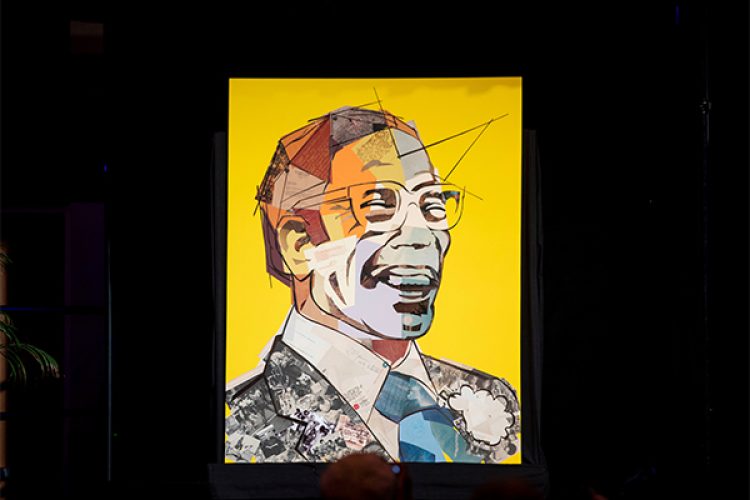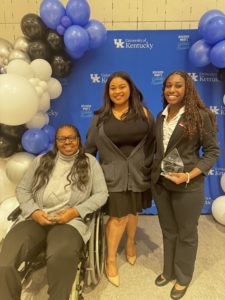Incoming Master of Social Work (MSW) student Eman Ghoneim now joins her fellow incoming MSW student Quinten Harris and current student Alisia Taylor Sullivan in receiving this tremendous fellowship. Sullivan is completing her first year of the fellowship.
In an effort to contribute to the mission of enhancing diversity, the University of Kentucky established the Lyman T. Johnson Postdoctoral Fellowships to support postdoctoral fellows in graduate and professional areas. The fellowship is named in honor of UK’s first African American graduate student, Lyman T. Johnson.
Johnson, known as a desegregation pioneer, sued UK in 1949 after two failed attempts to enroll in the University’s graduate program. At the time, UK’s graduate school was completely segregated. The university held the stance that black and white students should not attend the same school, a stance that many institutions across the nation held.
By April of 1949, Federal Judge H. Church Ford ruled that UK must admit black students to the university. Through Johnson’s actions, it became possible for future black students to be a part of the graduate program.
The LTJ Fellowship is awarded to first-year or continuing graduate students. Candidates for eligibility contribute to the University of Kentucky’s compelling interest in diversity, is a first-generation college student and exemplifies leadership, extracurricular activities, awards and recognition, and/or community service.
Fellowship recipients pursue an individualized research program under the mentorship of one or more UK professors and actively participate in departmental and professional research-related activities. Fellows play a lead role in designing, developing, and implementing research programs that contribute to a department’s overall graduate education and research mandates.
The fellowship provides a $47,476 stipend plus benefits. In addition, the fellow receives $2,000 for support of research activities. Fellowships are available for up to two years. The initial appointment is for 12 months, but recipients may apply for a second year.






